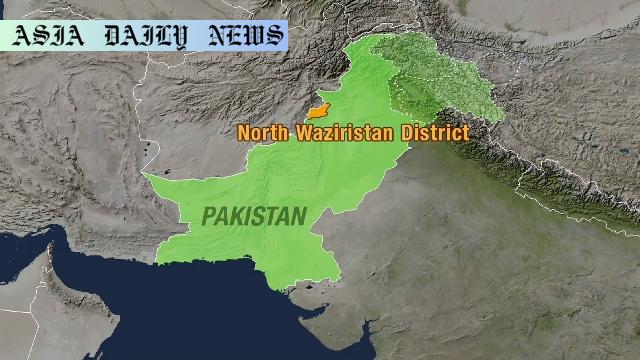Suicide Bombing: Pakistan accuses India in deadly attack claiming 13 soldiers’ lives.
A suicide bombing kills 13 Pakistani soldiers in North Waziristan.
Pakistan accuses India of involvement; India denies claims.
Pakistani Taliban faction has taken responsibility for the bombing.
Tensions soar between Pakistan and India amid blame exchanges.

A Devastating Terrorist Act in North Waziristan
The recent suicide bombing that struck Pakistan’s volatile North Waziristan district has tragically claimed the lives of 13 soldiers, leaving the nation reeling. The attack occurred when a suicide bomber rammed an explosive-laden vehicle into a security convoy, causing extensive damage and casualties. Three civilians have sustained injuries as well. This mountainous region, near the Afghan border, has long been a hotspot for militant activity, contributing to consistent instability in the area.
Conflicting Accusations Heighten Tensions with India
In the aftermath of the attack, Pakistan’s military has pointed fingers at India, accusing its neighbor of orchestrating the incident through a proxy militant group. This claim has been met with a sharp rejection from India’s foreign ministry, which dismissed the allegation as baseless and contemptible. Indian authorities maintain their stance, asserting that the tension-laden bilateral ties are not aided by such accusations. Relations between the two countries have been fraught following military clashes earlier this year, exacerbating hostility despite a nominal ceasefire agreement.
Militant Groups Operating in the Region
Islamist militant groups, including the Pakistani Taliban, remain active in North Waziristan. A faction of the Pakistani Taliban has claimed responsibility for the deadly bombing. However, Pakistan’s military insists that the attack was coordinated externally, facilitated by India. According to Pakistani authorities, subsequent firefight operations led to the killing of 14 fighters associated with the militant group involved. While such militant claims are not uncommon, the underlying geopolitical tensions contribute to a broader pattern of accusations and counterclaims.
The Human Impact and Political Response
The bombing has left families grieving for soldiers who lost their lives in the line of duty. In response, Pakistan’s interior minister visited wounded personnel in a show of support for the military. The government vowed to take stringent action against elements responsible for the attack while simultaneously urging international allies to assess the destabilizing role of external factors. This incident highlights the human cost of ongoing regional conflicts and diplomatic animosities, with innocent civilians and soldiers paying the price.
The Broader Implications of Rising Tensions
This latest attack underscores the fragile situation in South Asia as both India and Pakistan continue to exchange accusations of cross-border subversion. Peace processes have remained stalled for years, with dialogue repeatedly breaking down over issues such as Kashmir and terrorism. The rising frequency of deadly violence in border regions demands a concerted international effort to mediate disputes and ensure stability. Without constructive dialogue and mutual trust, the cycle of violence and blame threatens to escalate further, putting additional civilian and military lives at risk.



Commentary
The Human Cost of Persistent Regional Tensions
The tragic suicide bombing in North Waziristan serves as a stark reminder of how geopolitical rivalries translate into human suffering. Thirteen lives were lost in a single act of violence, alongside injuries to civilians—grim statistics that underscore the never-ending toll of regional strife. For the families of the soldiers and injured civilians, this is more than just a headline; it is a devastating personal loss. These human stories are often overshadowed by the political blame game that follows such events, diverting focus from the real cost of these conflicts.
The Fragility of India-Pakistan Relations
The accusations directed toward India following the bombing reveal the fragile and volatile state of Indo-Pakistani relations. While Pakistan’s claims of Indian involvement are strongly denied by New Delhi, the broader question revolves around the continual erosion of trust between these two nations. Each incident of violence seems to widen the trust deficit, creating a cycle of suspicion and animosity. Without credible mechanisms to address grievances, these neighbors are poised to remain locked in perpetual conflict that threatens wider regional security.
The Role of International Mediation
As tensions rise between these nuclear-armed neighbors, the role of international bodies and allies becomes crucial. A proactive international response could help to mediate longstanding disputes, reduce violence in border regions, and foster dialogue. However, for this to happen, both Pakistan and India need to demonstrate a genuine will to prioritize peace over political posturing. Until then, the specter of violence will continue to hang over the region, putting countless lives—civilian and military alike—at risk.